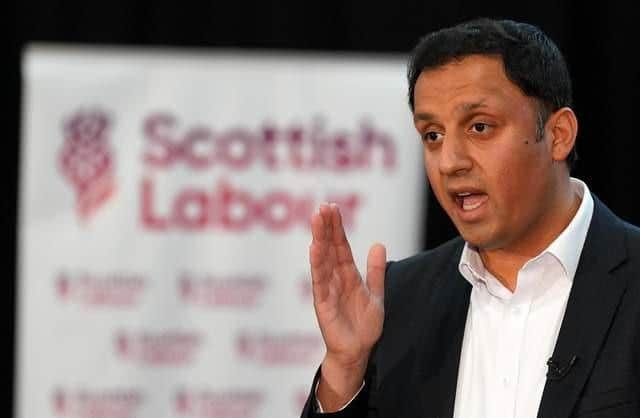Number of Scottish Government ministers should be slashed, says Anas Sarwar
It came as the Scottish Labour leader unveiled plans to boost transparency and accountability in the Scottish Parliament by cracking down on second jobs and allowing MSPs to be sacked mid-term under certain circumstances.
Mr Sarwar wants to strengthen Holyrood committees, improve transparency by changing Freedom of Information (FOI) laws and hand MSPs greater legal protection to allow them to raise issues in Parliament “without fear of prosecution”.


Advertisement
Hide AdAdvertisement
Hide AdHe said SNP ministers “operate a culture of secrecy and cover-up”, adding: “The day-to-day role of Holyrood should be focused on improving the lives of Scotland – their primary tool to do this is through the tools of accountability provided for by the Scottish Parliament.
“However, when you have a Government which actively seeks to avoid scrutiny and backbenchers who suspend their responsibilities in the name of party interest, then the system needs to be reformed.
“Committees have been ignored, processes run roughshod over and the responsibility to be truly accountable to both Parliament, the press and the public have been ignored by SNP ministers.
“The Scottish people deserve so much better than this.”
Mr Sarwar’s plans are outlined in the second of a series of papers setting out Labour’s proposals to reform Scotland and the UK.
It says a limit should be placed on the number of ministerial posts “to protect the number of backbenchers available to scrutinise the Government”.
Speaking at a press conference in Edinburgh, Mr Sarwar said the Scottish Government had expanded in recent years as a way of exercising “management, control and influence” rather than anything to do with transparency and accountability.
He said: "I think there absolutely needs to be a shrinking of the number of ministers, I think there needs to be a shrinking of the number of special advisers and there certainly needs to be a shrinking of the number of press officers we have across the Government.
"I think there's probably now more Scottish Government spin doctors and press officers than there are Scottish journalists, certainly the number of Scottish journalists working in Holyrood. That can't be acceptable or right."
Advertisement
Hide AdAdvertisement
Hide AdElsewhere, Scottish Labour said it wanted to introduce a “right of recall” for MSPs.
The party cited rules in Westminster allowing constituents to remove MPs by sparking a by-election under certain limited circumstances, such as if an MP has been convicted of an offence and sentenced or suspended from parliament for at least ten sitting days.
There has been a debate over introducing similar measures in Holyrood following the downfall of former SNP minister Derek Mackay, who clung on as an MSP despite widespread criticism over messages he sent to a 16-year-old boy.
Labour also said no MSP should be allowed a second job “without clear justification that it is in the public interest”.
And it outlined plans to toughen the ministerial code and give MSPs Westminster-style “parliamentary privilege”, which grants certain legal immunities when issues are raised in the Parliament chamber.
A Scottish Government spokesman said it is “committed to openness and transparency”, adding: “Scotland already has the most open and far-reaching FOI legislation in the UK, and we are currently considering extending it even further.”
He said: “The Scottish Government’s communications department supports the provision of information to the public such as vital public health messages, promotion of Covid-19 and flu vaccination campaigns and advice on help with energy bills and the cost of living crisis.
“Our news service functions round the clock, providing responses to journalists’ enquiries seven days a week, ensuring newspapers and broadcasters can access information on behalf of the public and hold the government accountable.”
Comments
Want to join the conversation? Please or to comment on this article.

